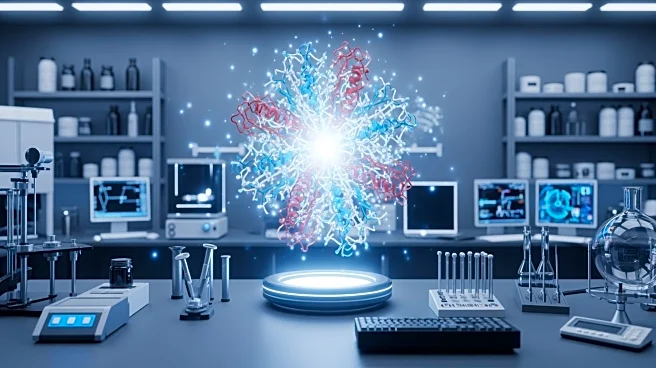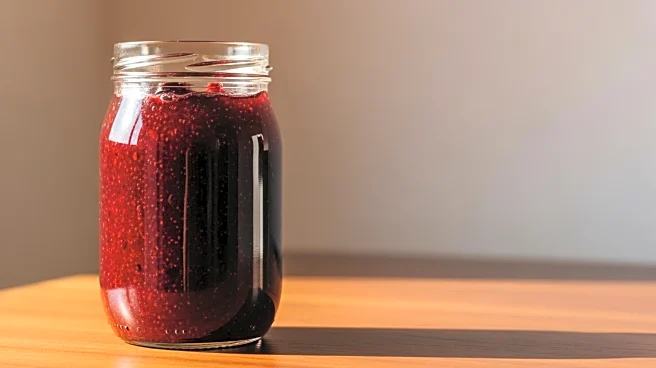What's Happening?
Caravel Bio has been awarded a $7.8 million grant from the U.S. National Science Foundation Directorate for Technology, Innovation and Partnerships. The funding will support Caravel's efforts to develop a unified platform for protein discovery and delivery,
integrating cell-free protein synthesis with bacterial spore display. This platform aims to overcome limitations in protein design by utilizing non-canonical amino acids to enhance protein function. Caravel's initiative involves collaboration with Avery Bio, Caltech, Rutgers University, and Oregon State University, focusing on advancements in DNA synthesis, animal health, and sustainable manufacturing.
Why It's Important?
The grant represents a significant investment in synthetic biology, a field with potential to revolutionize industries such as healthcare, agriculture, and manufacturing. Caravel's platform could lead to breakthroughs in protein engineering, enabling more efficient and scalable production of enzymes and vaccines. This could enhance animal health, reduce costs in DNA synthesis, and support sustainable chemical manufacturing. The initiative aligns with broader efforts to leverage biology as a transformative industrial technology, potentially driving economic growth and innovation.
What's Next?
Caravel will lead a three-year initiative with its partners to develop new protein chemistries and machine learning models. The project aims to create thermostable protein-based vaccines for livestock and enzymes for clean chemical production. Success could attract further investment and collaboration, expanding the reach of synthetic biology in various sectors. The outcomes may influence policy and regulatory frameworks, encouraging more support for biotech innovations.
Beyond the Headlines
The project highlights the growing importance of interdisciplinary collaboration in scientific research. Ethical considerations regarding the use of synthetic biology in food and medicine may arise, prompting discussions on safety and environmental impact. Long-term, Caravel's work could contribute to shifts in industrial practices, promoting sustainability and reducing reliance on traditional chemical processes.

















